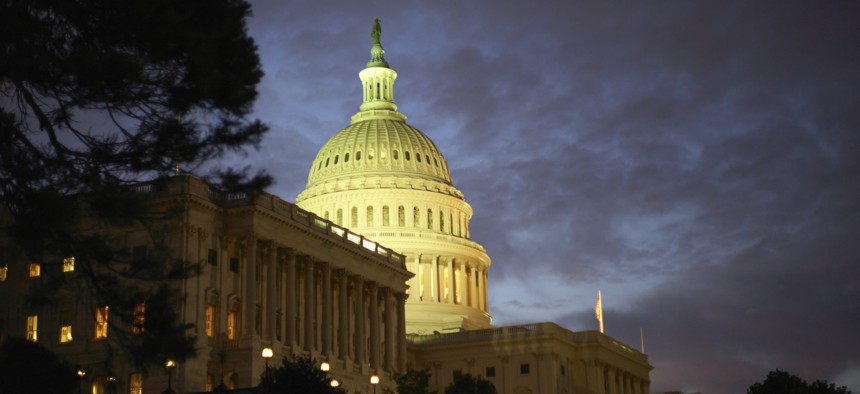Groups Call For More Accountability in State, Local Government Aid

The United States Capitol building, west facade, at dawn is seen in this general view , Monday, Jan. 27, 2020, in Washington, DC. AP Photo/Mark Tenally

Connecting state and local government leaders
A coalition of conservative groups has asked that if Congress approves more coronavirus aid funding, to require state and local governments to disclose how the money is spent.
Any coronavirus aid that Congress approves for state and local governments should include transparency measures to detail how the money is spent, a coalition of 30 conservative and libertarian organizations urged Monday.
In a letter sent to congressional leaders, the organizations advocate for increased accountability measures to be built into any new aid package including requiring states to publicly disclose how they spend the funds.
“This common-sense requirement will reassure both citizens and federal officials that recipients disbursed the provided aid effectively and efficiently,” wrote the organizations, which include the R Street Institute, Heartland Institute, Americans for Tax Reform, National Taxpayers Union and Mackinac Center for Public Policy.
The CARES Act, a $2 trillion economic relief package signed by President Trump in March, allots about $150 billion in direct aid to state and local governments. But legislation approved by the Democrat-led House would direct more than $900 billion to state and local governments. So far, the Senate has not taken up that bill and Republicans are unlikely to embrace aid at that level, although some have indicated they do want to put together a package.
The money from the CARES Act can be used to cover expenses related to the coronavirus, though some state and local officials have argued they should have greater leeway to use the money to offset lost revenues. The reduced tax collections from business closures related to the coronavirus are expected to blow large holes in state and local government budgets.
Jonathan Bydlak, director of the Fiscal and Budget Policy Project at the R Street Institute, said so far, the federal assistance amounts to a blank check with no reporting or tracking accountabilities built in.
“We should be sort of demanding the same kind of transparency with state aid as with aid to businesses and individuals,” he said, referencing the disclosures made about payments that businesses received through the Paycheck Protection Program.
On Monday, the Small Business Administration released information detailing the 660,000 loans issued as part of the federal $660 billion program, and identifying small businesses and nonprofit organizations that received at least $150,000 in funding. The Government Accountability Office, a federal watchdog, is also required to issue reports on CARES Act funding.
State governments could face budget shortfalls totaling $650 billion over the next three fiscal years due to the outbreak, according to a previous estimate from the liberal-leaning Center on Budget and Policy Priorities. State budgets are expected to experience their largest shortfall—$350 billion—in the 2021 fiscal year, which began in July in most states.
Now that state and local governments may have a better idea of the financial impact the coronavirus will have on their budgets, Bydlak said he’d like to see governments submit plans detailing what they would spend federal dollars on before the money is appropriated.
Requiring documentation to be in place to record how the money is spent would ensure it goes toward expenses related to the pandemic and recovery effort and is not spent on pensions or rainy-day funds that were not in good financial shape before the outbreak, he said.
In any future aid packages, the coalition also urges Congress to limit financial aid to expenses related to the coronavirus, rather than offsetting revenue losses, to apportion direct aid on per capita basis, and to encourage any states and localities that do receive future federal aid to have fiscally sound practices.
Andrea Noble is a staff correspondent with Route Fifty.

NEXT STORY: ‘Sin Taxes’ Could Help States in Pandemic Budget Slump (at Least a Little Bit)




